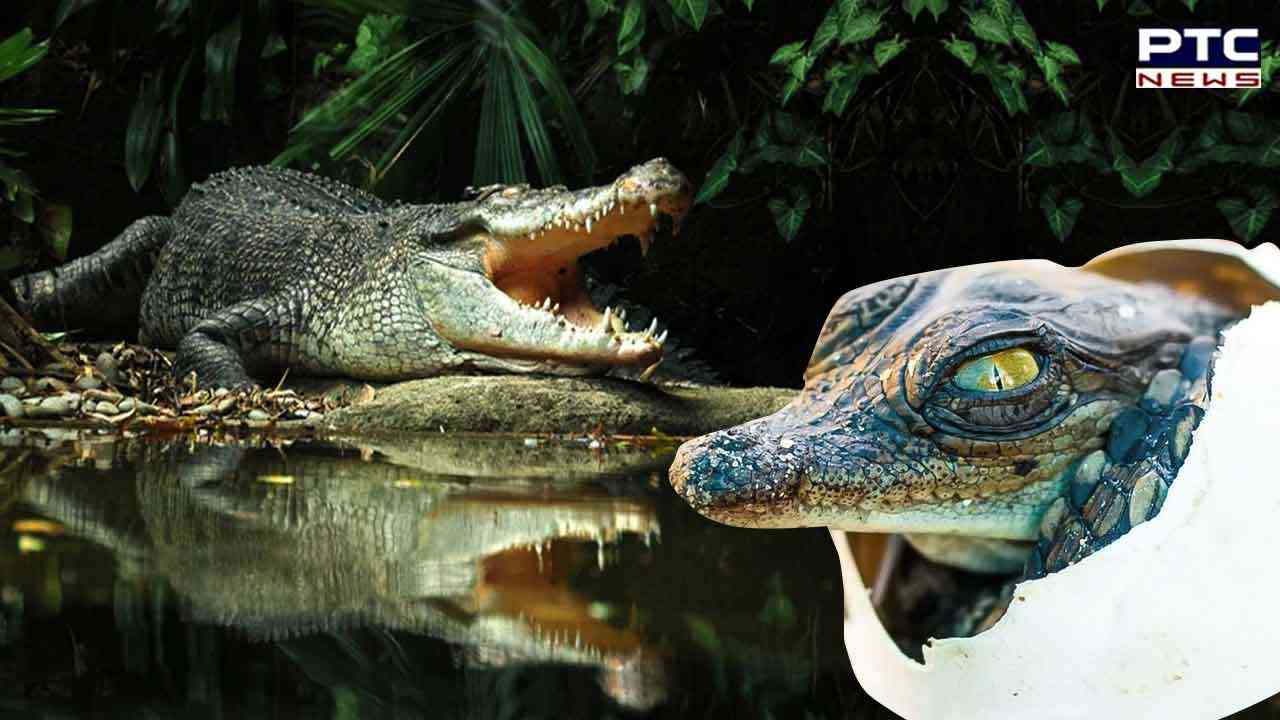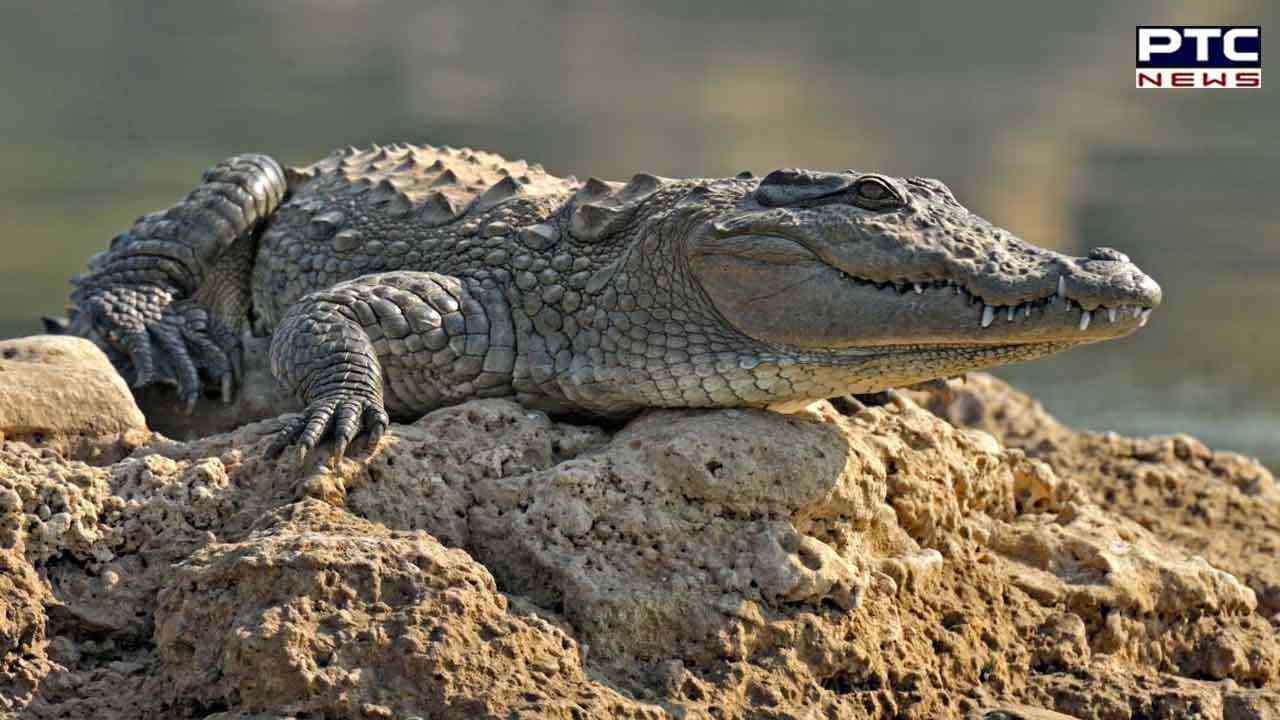

Intriguing Case of 'Virgin Birth': Crocodile impregnates herself, puzzling scientists
PTC News Desk: Scientists have been captivated by a fascinating occurrence in a Costa Rica zoo, where a crocodile reportedly impregnated herself, resulting in a foetus that is 99.9 per cent genetically identical to its mother. This phenomenon, commonly known as "virgin birth" or scientifically referred to as parthenogenesis, has astonished experts and sparked intrigue within the scientific community.
Dr Warren Booth, who examined the foetus, revealed that parthenogenesis is prevalent in various species such as sharks, birds, snakes, and lizards. This phenomenon gained more attention when individuals began keeping pet snakes, leading to a surge in reported cases. However, it is unusual to observe parthenogenesis in crocodiles, making this incident all the more remarkable.

The subject of this unprecedented event is an 18-year-old female American crocodile residing in a Costa Rica zoo. The fully formed but stillborn foetus found within her exhibited an astonishingly high genetic similarity to the mother. Throughout her life, this crocodile had minimal interaction with other crocodiles and had been in the zoo's care since the age of two.
Also Read: Wildfire smoke from Canada puts millions at health risk across North America
The study documenting this extraordinary incident has been published in Biology Reports, under the title "Discovery of Facultative Parthenogenesis in a New World Crocodile."
The research highlights the once-considered rarity of facultative parthenogenesis, which refers to sexually reproducing species producing offspring without the genetic contributions of males. The study sheds light on the documented occurrence of parthenogenesis in various vertebrate lineages, including avian and non-avian reptiles. However, prior to this case, parthenogenesis had not been observed in reptiles such as crocodiles, alligators, and gharials.
The revelation of a crocodile impregnating itself and undergoing parthenogenesis has left scientists intrigued and searching for answers. This unprecedented event challenges previous notions about reproduction in reptiles and opens new avenues for research and understanding. As experts continue to delve into this phenomenon, the scientific community eagerly awaits further discoveries and insights into the intricate workings of nature.
Also Read: Unraveling the Viral Story: Did Baba Vanga predict a terrifying nuclear disaster?
- With inputs from agencies
